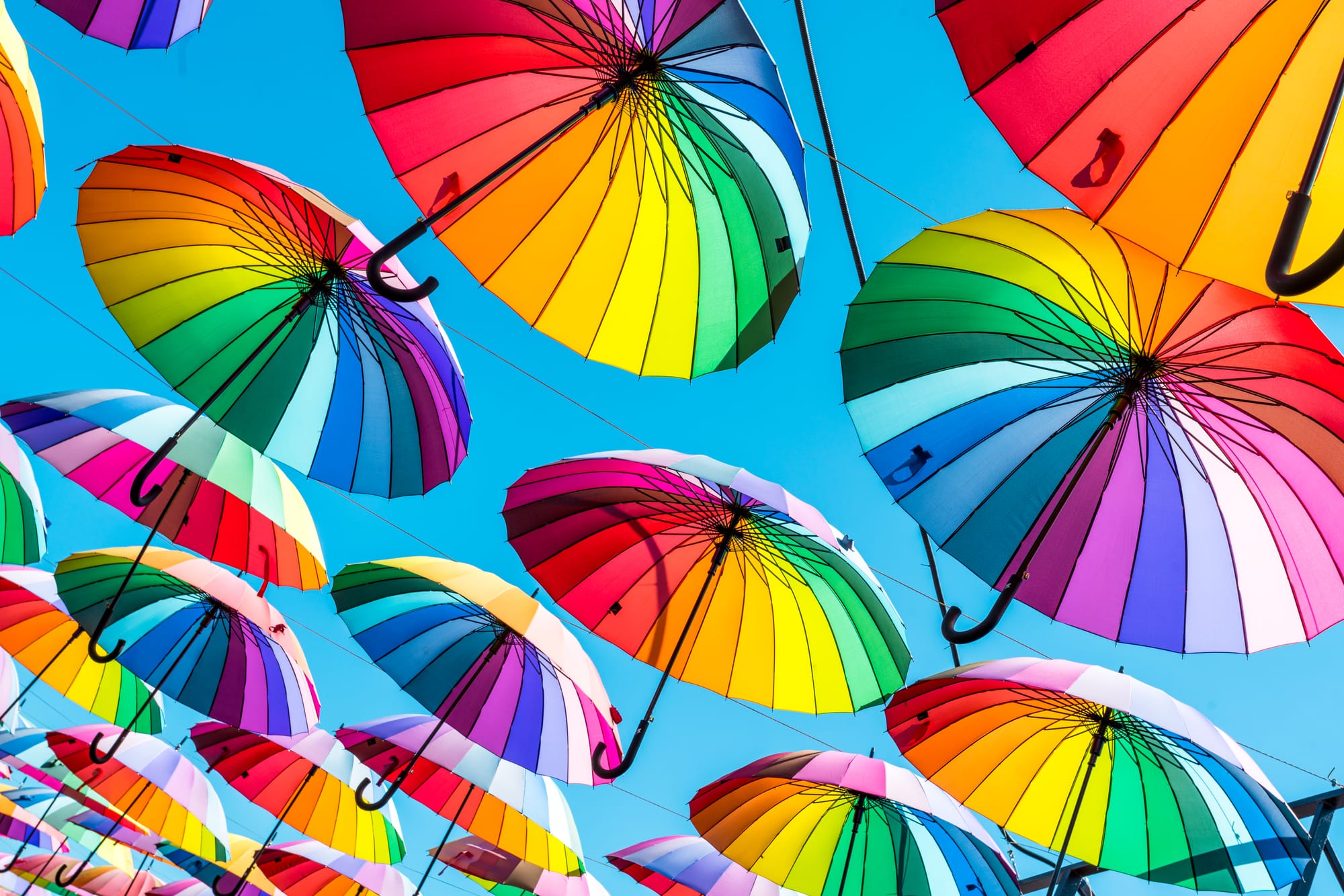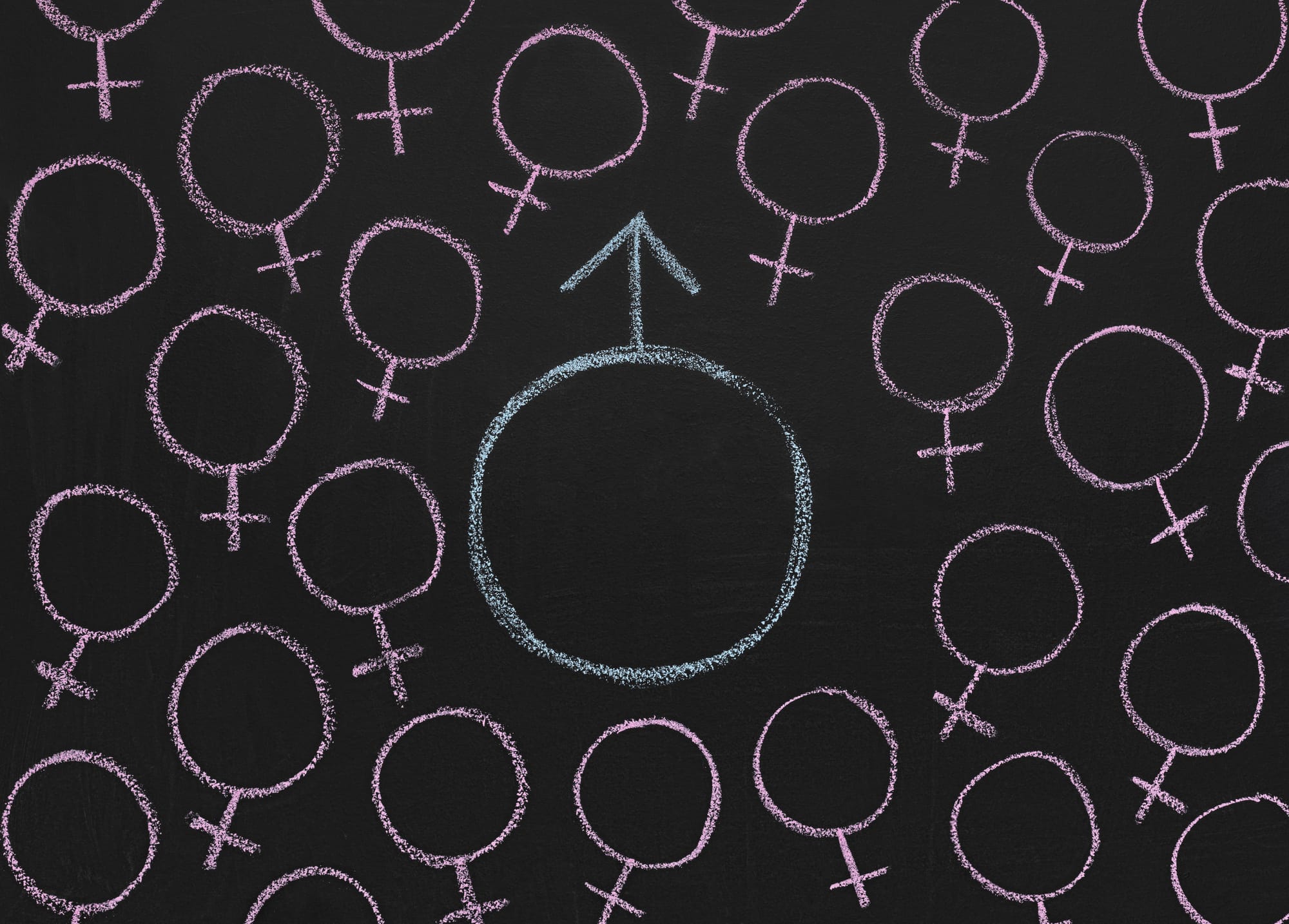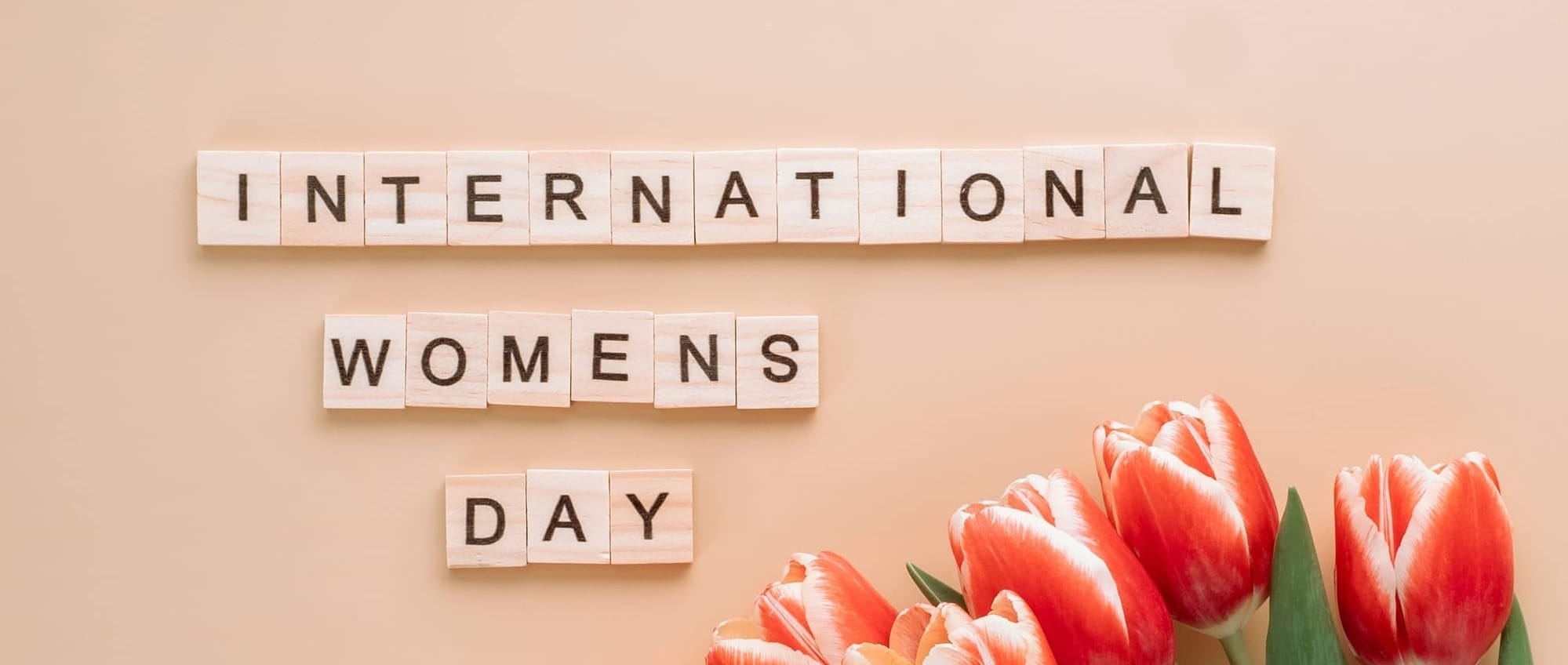By its very nature, Pride is about uplifting, uniting and inspiring - all of which should be familiar goals for those in the world of events. However, although our industry has brought people together at its heart, there are questions that we have to ask ourselves when it comes to LGBTQ+ equality; are we doing enough to make sure that the spaces we create are open and safe, and that the legacy our events create is positive for all in attendance?
In this article, we explore what Pride means for the events industry this year, asking what's changed, what we still have to work on and where the future of our industry leads in the ongoing fight for LGBTQ+ rights worldwide.
Looking back to the roots of Pride
Events are deeply embedded in the history of Pride and LGBTQ+ rights, as by their nature, they have the power to unite people under a common goal. Without people coming together to protest, celebrate and seek change as a community, the advances that we've seen in the world around inclusivity and acceptance would likely have been far less marked.
In fact, events have been the catalyst for a huge number of key moments in the struggle for LGBTQ+ rights. The beginning of the Pride movement is attributed to the Stonewall riots, which began with a police raid on a gay venue in New York's Greenwich Village. An event which sparked days of fierce protest and decades of continued fighting for an end to persecution against the LGBTQ+ community. Pride is celebrated all around the world in June to commemorate the bravery of those who stood up against oppression at the Stonewall riots, and continue to stand up for the rights of the community today.
As well as championing the principles of Pride, the events industry should take note of how the movement has fought for its own right to exist in the face of adversity. The right to gather, celebrate, protest and share experiences in a safe and welcoming environment is something that our industry is built on and should be standing up for at all times and in all forms. If some aren't free to express and enjoy themselves at our events, then we, as an industry, are failing to do what we set out to do.
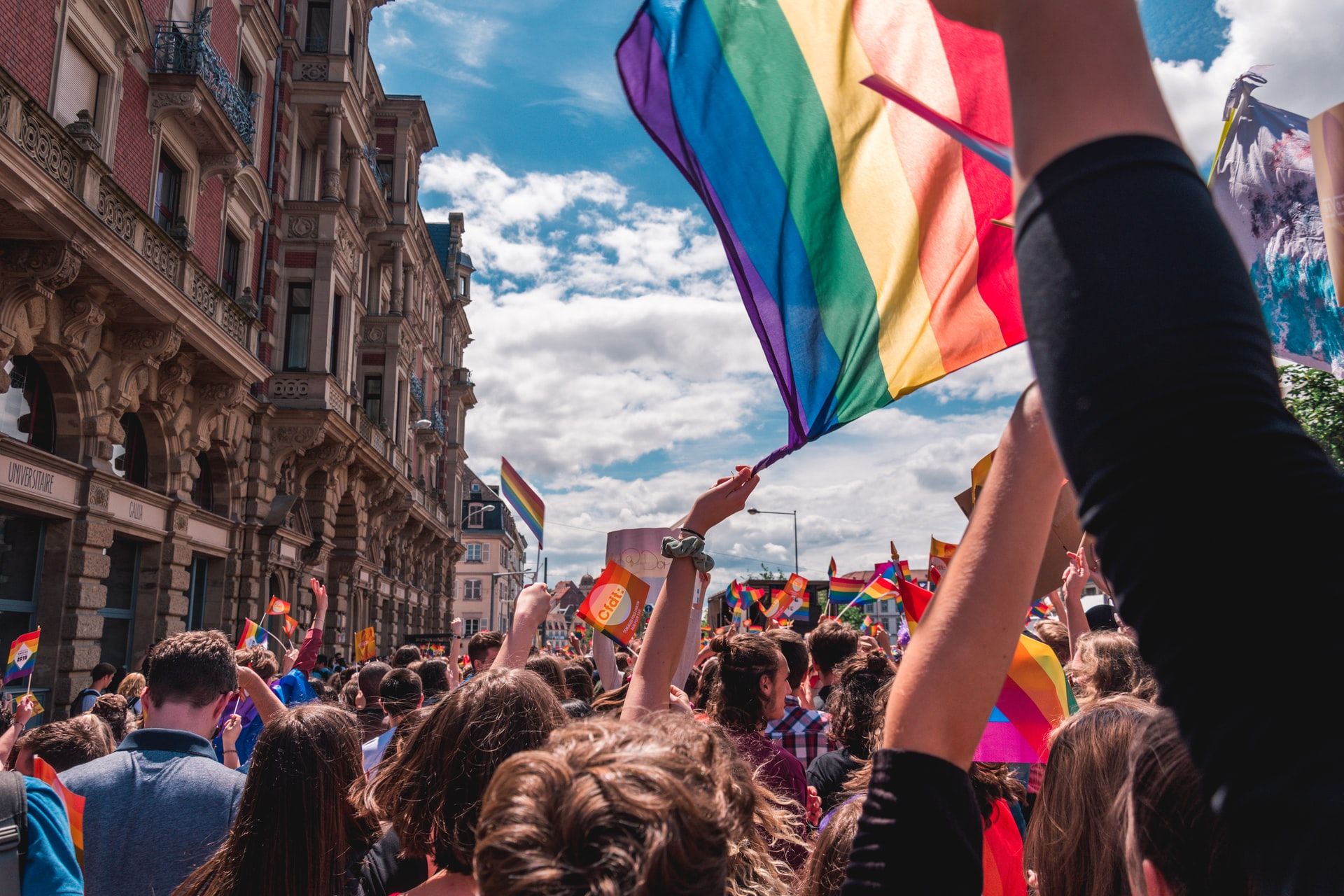
What does Pride mean to the events industry today?
Since its inception as an annual parade in 1970, held a year after the Stonewall riots, Pride has grown into one of the most iconic events in the global calendar. What began as a powerful protest has evolved into a vibrant celebration of identity, visibility, and equality.
Today, Pride is recognised and celebrated through a wide range of events across the globe—not just during Pride Month in June, but also throughout LGBTQ+ History Month in February and beyond. It’s a movement that continues to inspire, unite and drive change.
For the events industry, Pride represents more than just a moment—it’s a reminder of the role we play in creating inclusive, welcoming spaces and championing diverse voices year-round.
Celebrating community
Today, more than ever, events are synonymous with community. After the years of lockdowns and isolation a few years back, the joy of coming together in person has never felt more meaningful.
Now, as we gather once again, it’s more than just a reunion; it’s an act of resilience. But this reconnection comes at a time when hard-won progress is under threat. In the UK and other parts of the world, we’re seeing a troubling rollback of rights and recognition, particularly around gender identity. Efforts to erase non-binary identities and limit the rights of trans people serve as a stark reminder that equality is far from guaranteed.
That’s why Pride and the events that surround it matter so deeply. It’s a chance to stand in solidarity, amplify underrepresented voices and remind our communities that they’re not alone. At its core, Pride is about courage, connection and collective strength. And if that’s not what the events industry stands for, we don’t know what is.
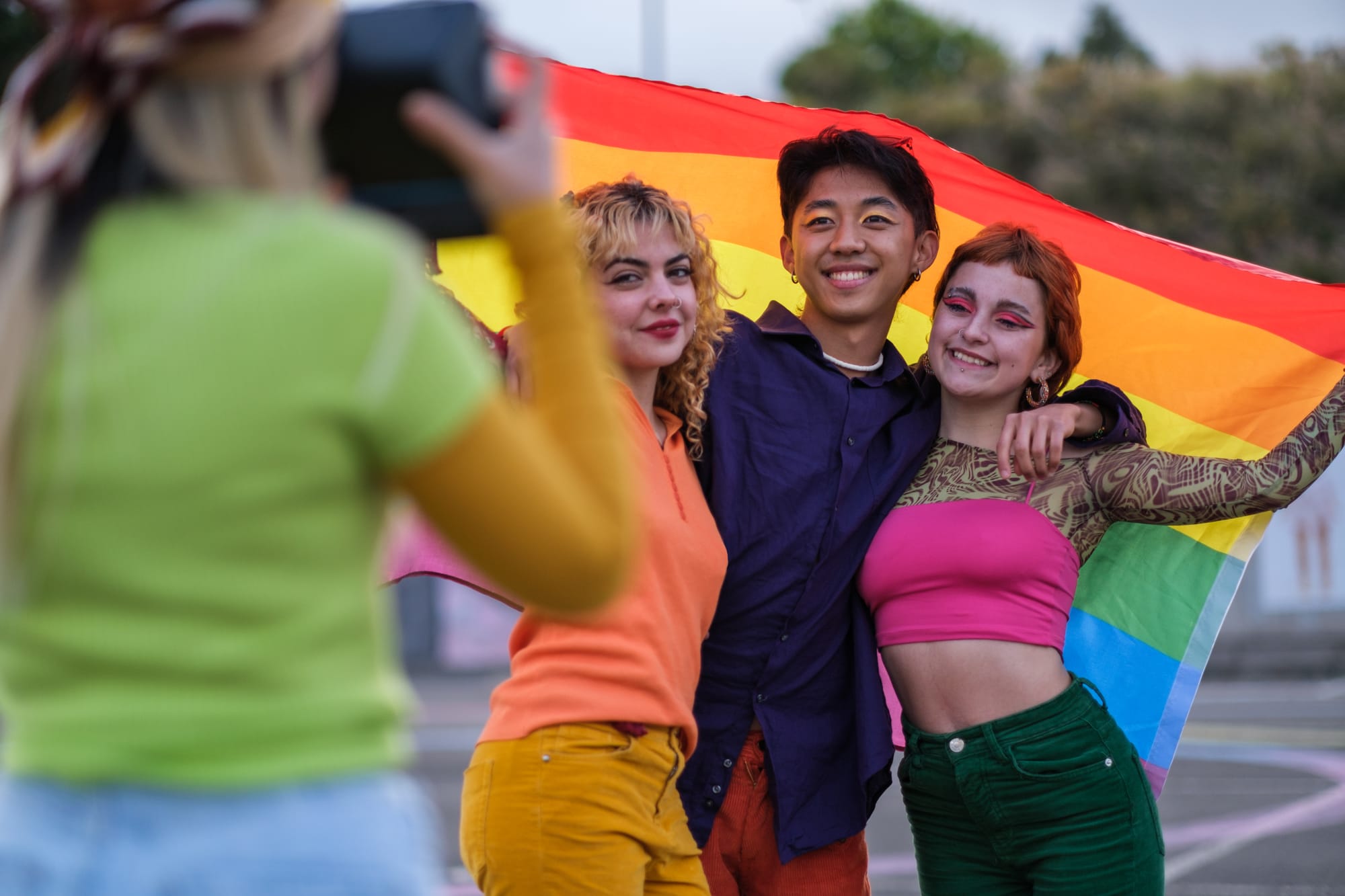
Sharing ideas and experiences
If there's something we love doing as an industry, it's introducing people to new experiences and ideas. It's what drives us as event profs, what keeps us going when the deadlines start building, and what constitutes the biggest part of the reward when all's said and done. Pride is about exactly the same principles: sharing ideas and philosophies, and listening, learning and being inspired by others.
While we should all be listening and learning from others with different experiences all the time, it can be easy to get stuck in our own echo chambers. Having a dedicated celebration that reminds us to stop, think, and grow our understanding of someone else's viewpoint is a hugely valuable opportunity and one which we should jump at the chance to explore. After all, our work is only as good as how it makes our clients and guests feel, so understanding people is key to our success as an industry.
Having fun!
It's not all philosophising. Pride is a universal celebration, and it's meant to be enjoyed by all. The ethos of Pride is spreading love, positivity and encouragement as far as possible, to everyone who wants to share in the movement. That's the kind of event we like to get behind!
Both LGBTQ+ History Month and Pride Month bring a tidal wave of festivities and celebrations to cities and towns across the world. Every year, Pride parades and parties are a wonderful reminder of why events matter and how they make the world a more inclusive, more exciting, and all-around better place.
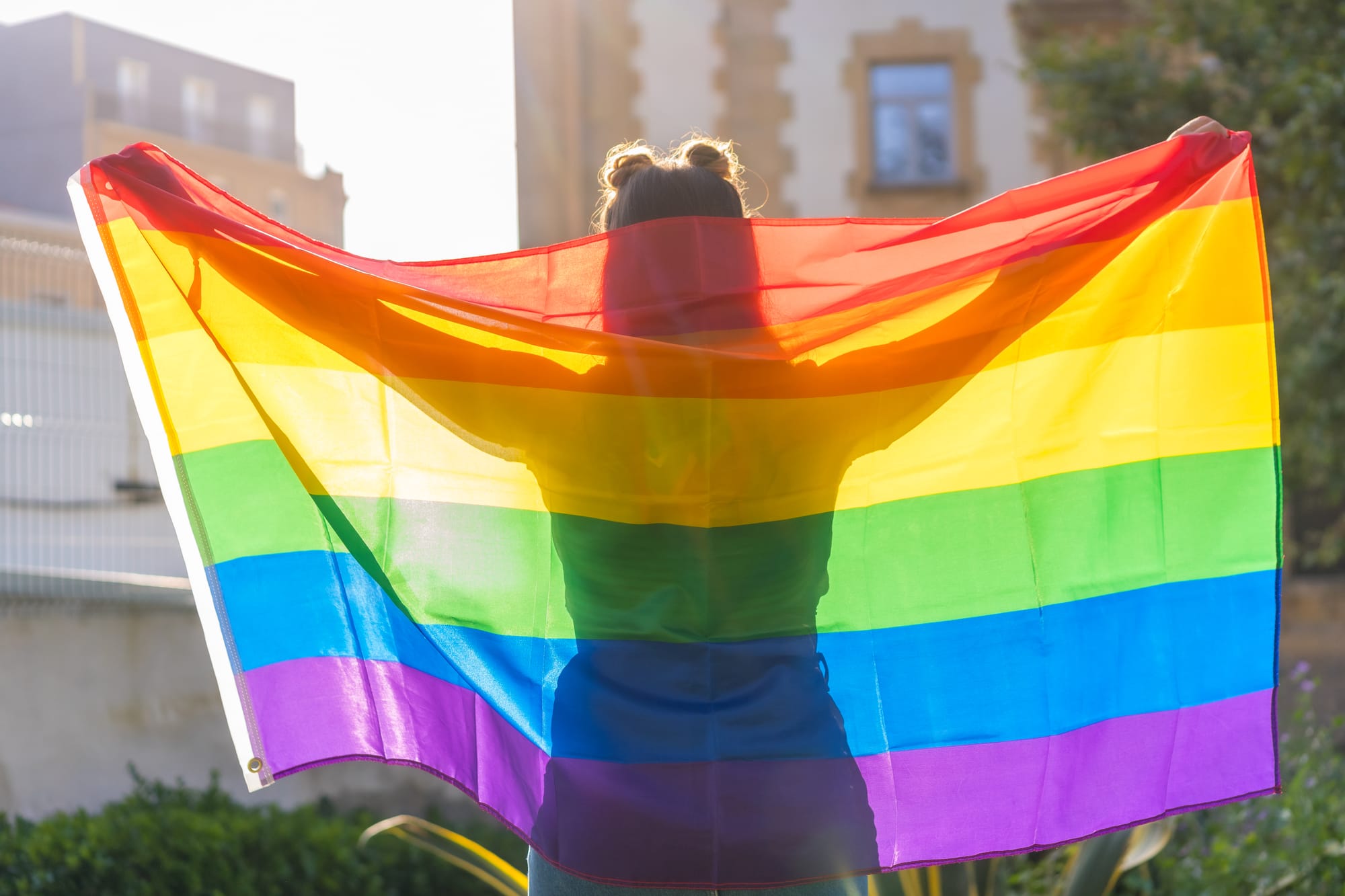
What can we do as event organisers to support LGBTQ+ attendees at events?
Whether it's a Pride celebration you're organising, or a conference, meeting, party, retreat or any other kind of event, as event organisers, we have a duty of care to our attendees. When thinking of how we can best safeguard and support attendees, often LGBTQ+ issues are tagged on as an afterthought in the planning process, but this risks alienating or endangering guests. To make sure we offer a safe and inclusive environment at events, we've outlined some steps that can be taken to make sure all at our events feels welcome and protected.
Vet your venue
Just as you would vet the physical safety of the site or venue before inviting attendees there, it's essential to vet the social environment of your venue before asking guests to attend. Your venue sets the scene for the entire event, so it should be a safe space that makes everyone in attendance feel accepted and welcome. Many venues have connections to LGBTQ+ groups, while others make a conscious effort to be inclusive through their signage, facilities and messaging. Avoid at all costs any venue which has lax anti-discrimination policies or where there have been allegations of discrimination in the past. For a starting point, you can get in touch with our experts for recommendations on LGBTQ+ friendly venues.
Consider aspects such as toilets. Are there facilities available for those who may not identify within a male/female binary? The simple fact of having somewhere available that doesn't confront attendees with narrow notions of gender may make your guests feel more at ease and welcome in a space. Some venues offer unisex toilets in addition to gendered stalls or have facilities that aren't divided at all. However, it's worth considering all guests in this decision, as some may be more comfortable with a choice of separate bathrooms to use.
Work with trusted staff and suppliers
Where your venue provides the backdrop of your content, the people on hand at your event provide the context, so it's important to make sure they fit with the culture you're looking to convey. There are review sites you can use to find suppliers and staff who have been approved by LGBTQ+ agencies or are part of the community themselves, such as Proud Employers. If you're able to, take time to educate staff who haven't been trained to recognise negative situations.
Implement on-site safe spaces and support
As much as you plan for your event to be a welcoming environment, there are always things that you won't be able to control on the day. It can be a good idea to include a staffed area that allows people to step back from the action of the event and take a moment for themselves. This might be a quiet lounge area, a cafe, or a small exhibition space where attendees can move to if they feel uncomfortable in the main area. We recommend having a mental health-trained staff member manning this area as additional support, particularly if your event involves heavier topics that might affect some attendees negatively.
On that note, make sure you provide warnings on sensitive subject matters to attendees before the event, and follow up with a short introductory warning before any content sessions. This will allow attendees to make informed decisions on whether they feel comfortable attending the sessions. Giving attendees support at your event will also help to make your brand stand out among competitors as a company that genuinely cares about wellbeing, and will help to build brand loyalty.
Take an active stance against discrimination
In advance of the event, make sure you share with attendees that there will be a zero-tolerance policy for homophobic or any form of derogatory language at the event. Ensure that on the day this policy is enforced by staff and volunteers at your event. This will require staff training and safety considerations, but it is a hugely important step in following through on what you've promised.
You could also circulate an anti-discrimination statement as part of the pre-event communications. This not only advertises the conduct you expect to be on display at the event but also shows attendees that you take their well-being seriously. This statement could refer to your own inclusion policy or be event-specific, such as "We strive to provide equal access to all attendees, regardless of gender identity, sexual orientation, ability, race, religion or belief, at this event, and expect all attendees to respect this as well. If you have requirements you would like us to be aware of, please contact us directly. We will treat all information in a confidential manner.”
Respect confidentiality at all costs
It goes without saying that confidentiality is absolutely critical at any event, but there are several factors to make staff members aware of to keep attendees safe. Disclosing someone else's sexuality or gender identity is never acceptable without their express consent, and this particularly applies when it comes to those you have a duty of care towards, such as attendees and staff. This isn't only a matter of preference or privacy, but can be key to the safety of your attendees.
This includes aspects such as never including pronouns on name badges without the explicit go-ahead from the wearer, and not assigning people to, for example, gender-based groups based on an assumption about their identity. In addition, when you collect data on attendees based on their registration details, ensure that any sensitive information collected is not shared anywhere that could jeopardise their safety. This includes sign-in sheets, badges, and online information about attendees that is circulated pre- or post-event.
Extend a warm and inclusive welcome
Above all, the most positive thing you can do at events is to make sure your attendees feel included at all times. This can take many forms, from extending a welcome to everyone of all genders, sexualities, religions and beliefs in your introductory address, to incorporating plenty of inclusive content in your programme. A top tip, don't just stuff your content with soundbites, but think about how to include interactive sessions and creative exercises that get people collaborating and feeling included. For instance, you could include a meditation and mindfulness session that deals with reducing anxiety and opening up minds for the sessions ahead.
Make sessions and content inclusive
Events play a huge role in shaping how we view society, which is why representation at events is essential to furthering equality. By featuring content that is inclusive and draws LGBTQ+ rights into the spotlight, your event can have a powerful influence on the attendees and send them away with new perspectives. In addition, having openly LGBTQ+ identifying speakers on your panels allows attendees to feel represented in conversations on all topics, rather than merely on issues surrounding equality of gender and sexuality.
We're all aware that events have a transformative power, the lessons we take from them can have a huge impact on social values and our understanding of the world, so every event is an opportunity to spark positive change. Put your planning where your policies are, and try to make your content sessions as inclusive and representative as possible - you never know where the ripples from your event might end up causing change elsewhere.
Keep learning
It's important to remember that improving our events and our industry is a journey that doesn't happen overnight. We'll all make mistakes, but we'll learn from them and use them to make sure the next events we run are better on all sides. It's hugely valuable to collect insights from your attendees, so why not ask for feedback after the event on the content, venue, and interactions and what they'd like to see improved in future.
If you're doing your best to listen to concerns and use them to shape your future events, you're on the right track, so don't freeze up because of a worry that you might not get everything right the first time.
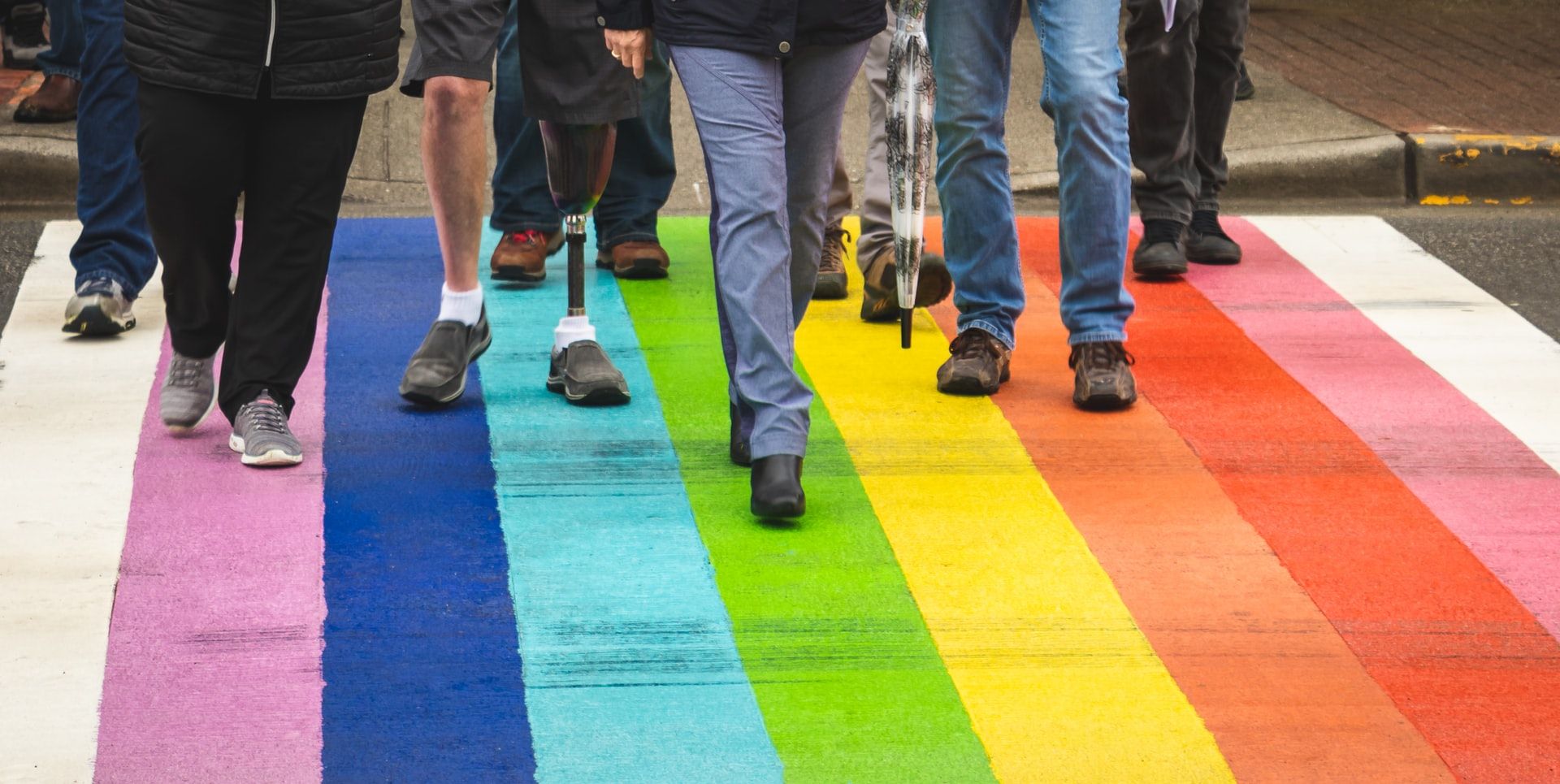
What can we do to support colleagues, employees and acquaintances in our industry?
It's one thing to make our events safer places, but it's equally important to ensure that we're promoting equality and inclusivity from within the industry, as well as outside it. People are at the heart of our industry, so making sure we're doing all we can to make them feel safe and accepted is vital. Here are our recommendations for being an ally to your team and network within the events world.
Stamp down on discrimination in the workplace
A non-discrimination policy applies both to events and to the workplace. In fact, having a strong policy against any form of discrimination in the workplace is critical to supporting your team and making everyone feel like they're respected and have the right to be themselves. This is something that most companies have in place, but if you haven't fully fleshed yours out, now's the time. Don't forget to share the policy with employees, and be sure to lay down what the company's response will be to any form of discrimination (hint: be sure to follow through on this, as doing so will give your team more confidence in the good intentions of the company).
Educate yourself and your team
Education is the best route to empathy, and we strongly recommend investing in a workshop, seminar or short course to raise your team's awareness and understanding of issues surrounding LGBTQ+ equality. By taking part in workshops run by LGBTQ+ action groups, your team will learn the history and context of the struggle and how they can go about supporting those in their network who are affected by discrimination or biases.
Unconscious biases are often the root of difficulties within teams, and by digging into the whats, whys, and hows, it becomes a lot easier to open conversations around the issues discussed. Encouraging open discourse among coworkers can be a great way to start breaking down barriers and making way for real compassion.
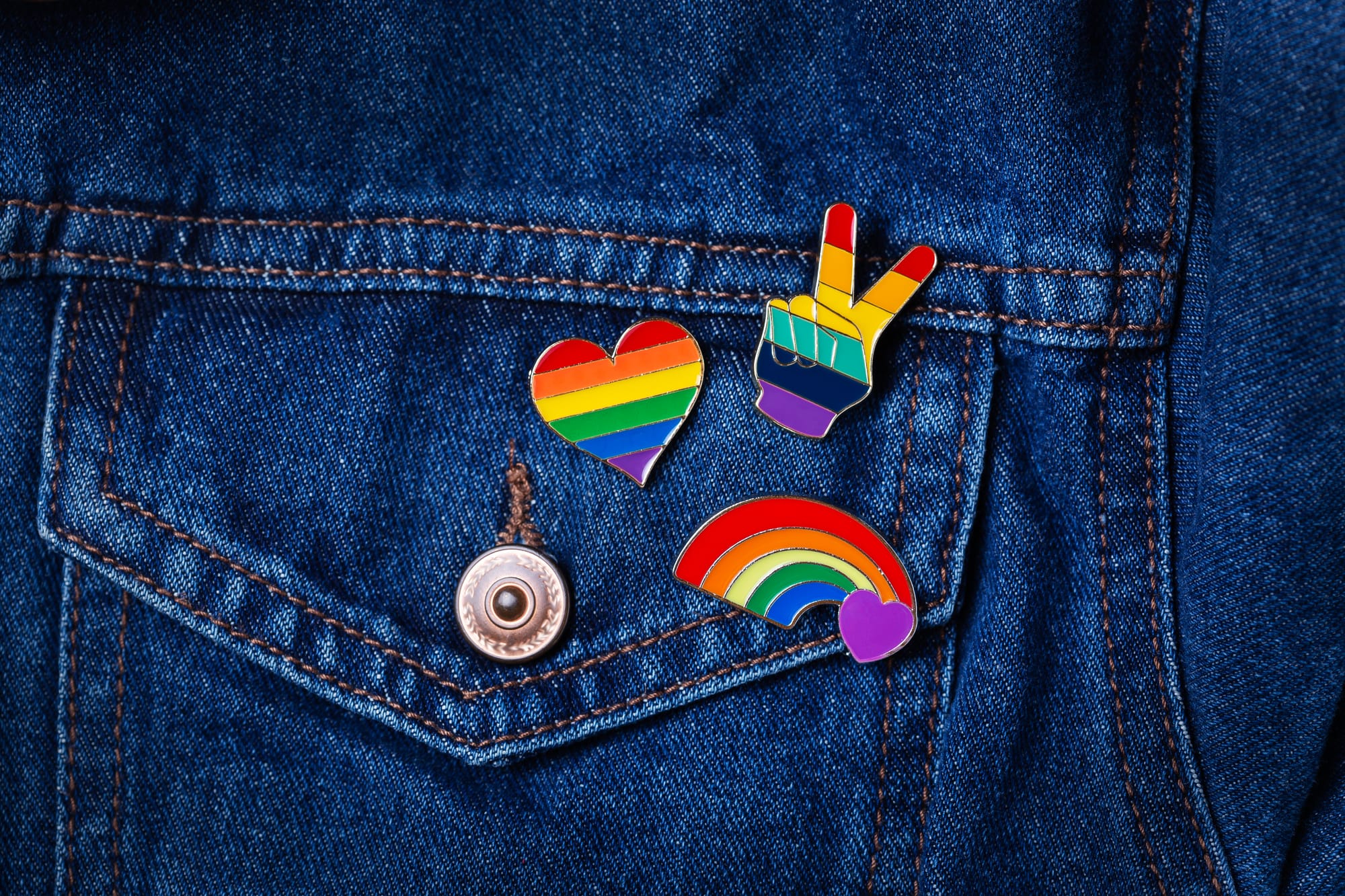
Watch your words
The language we use can have a huge impact on how comfortable someone feels in a situation, whether it be a personal conversation or a work setting. Aside from the obvious, such as having a no-tolerance policy towards slurs and harmful comments of any kind regarding sexuality and gender, it's important to ensure you and your team use appropriate, inclusive language day-to-day. Even seemingly innocuous terms such as "Hey guys" can be harmful in the wrong context, so learning to be mindful of your words is a compassionate and important step.
This could begin with asking teammates to share their preferred pronouns for others to address them by, in order for everyone to feel they're seen as who they are, and to avoid mistakes being made. This has to be handled extremely sensitively, however, as some people may not feel comfortable sharing their pronouns or other sensitive information with the full team. We recommend introducing the option to add pronouns to your email signature or in-house communications - we can't stress enough, however, that this has to be on a purely optional basis, without any pressure from anyone else in the team.
Make sure you offer support to team members
If you want to really push the industry in the right direction, it's critical that your team members, as well as the rest of your network in the sector, feel acknowledged and accepted and know they have your support. Make sure you promote the positive steps you're taking, whether on event communications or internally so that people know your company is investing in their well-being. And don't be shy to be vocal about measures you're taking to make both your workplace and events safer and more accessible to all - after all, you might end up inspiring others to change their practices too.
It's vital as well to have a system in place for people to provide feedback and report any issues or shortcomings. Make time to listen to the concerns of your team and peers in the industry, and make them part of your strategy going forward. However, team members who have been affected by discrimination against the LGBTQ+ community may be worried about expressing this to colleagues or employers. Perhaps the issues have arisen in a work environment, or the team member in question is concerned about revealing sensitive information about themselves, should they bring up the matter to HR. Many companies are opting to provide support in the form of external counselling sessions and external HR departments to provide employees with a level of comfort and anonymity, which can help safeguard employees and make them feel more comfortable speaking about important issues.

The events industry is inextricably connected to Pride. After all, events drive connections, and connections drive progress - and so on. As an industry, we've come a long way in terms of diversity and inclusion, from having an ever-increasing awareness of accessibility needs to seeing diverse entertainers headline festivals and chair conferences. But equality takes persistence, and we're far from having an equal society, in the events world and beyond.
This is the time for the events industry to step up and start implementing the changes that the world needs to see, both within our organisations and in our events. From establishing strong anti-discrimination policies that apply both at work and at events, to offering mental health support to colleagues and attendees, we can all shape the future of the events sector towards an industry that everyone can take pride in.
For more guidance or to get support on managing and staffing your events, get in touch with our event support team at the button below.
Find the perfect venue to celebrate Pride 2025
Take a look at all our fun venues on offer to celebrate with the team!
Browse Venues
Author

Gemma Baker
Gemma loves all things social media and keeps busy by creating lots of Hire Space content. When she’s not creating content, you'll find her shopping, exploring or at the gym!
